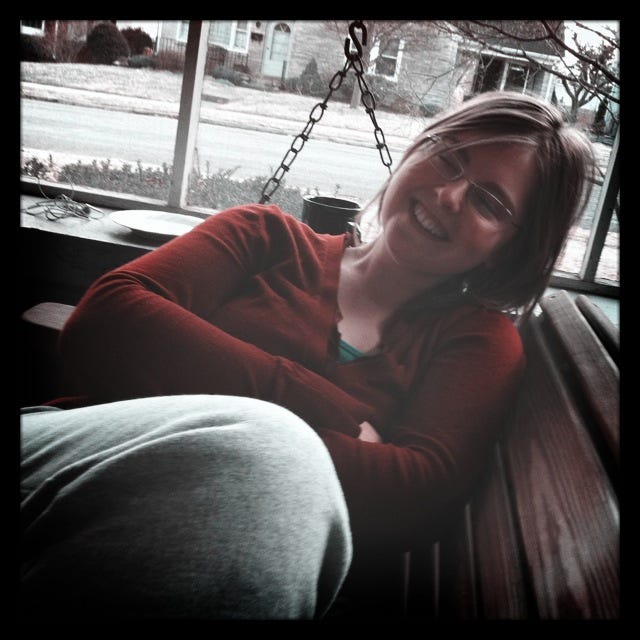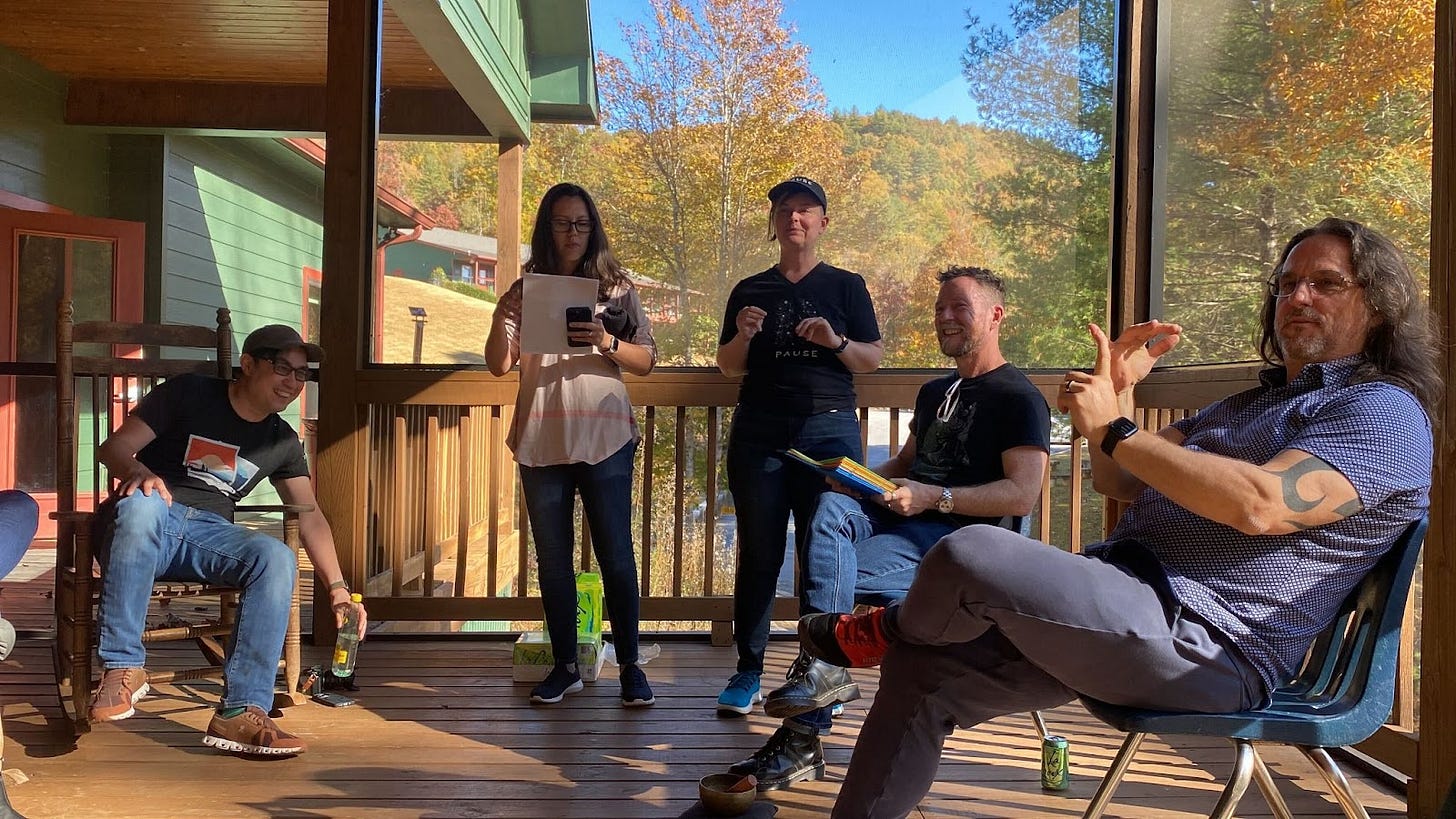A New Pause: Workplaces and the World
What if saving the world means enriching our workplaces?
I retired for the first time in my mid-twenties after a handful of high-intensity years working for an international non-profit. I’d been to six countries in six weeks and realized that if I didn’t make some major changes, I was unlikely to be alive at age 65 to retire… so why not do it now? I certainly didn’t have the financial resources to stop working forever, yet I also had very few financial obligations. If I didn’t rack up expenses, I had enough runway to pay my student loans and keep myself fed for about a year.
This worked great for a while. I couch-surfed with friends, binge-watched TV, drank dollar beers at happy hour, and cooked huge pots of bean chili that could feed me all week. For a few months, I had a blast living a life of leisure.
It didn’t last. Hanging out was fun, but it turns out I wanted more than fun. Within six months I took a job in operations at a startup medical practice, and my first retirement came to an end.
Why go back?
I went back to work because I like challenges, puzzles, and problems to solve. I like having deep friendships formed around joint endeavors. I like to make things with my friends, to explore, experiment, and build things together. I want to grow my own skills and capabilities, to stretch my own limits and develop new abilities. Work meets some core needs for me that leisure doesn’t: I want to make the world a better place alongside my friends, while learning and growing as a person.
I realized that the quality of the workplace itself can be what changes the world, regardless of the work the organization is doing.
In my first career, I thought that improving the world meant big changes – global health campaigns and government policies – and surely there’s a role for those. However, in my own nonprofit work, the macro impacts were never clear-cut. The place where I did see an impact was on a personal scale. For instance, the researchers we trained could now publish their findings to an international audience and were inarguably better off.
Slowly, I saw that these small, tangible improvements DO change the world. And better yet, I could effect change on a personal level through my everyday interactions. Building a better workplace made our lives better, first for the three of us at the medical practice and now for our team of 30+ at Proof.
I realized that the quality of the workplace itself can be what changes the world, regardless of the work the organization is doing.
Work as a site of meaning and connection
There are practices and skills that not only make the workday better, but have a ripple effect through the lives of the people on our teams, thereby improving the world. For instance, when we practice communicating clearly and compassionately, empathizing with one another, or collaboratively solving problems, we feel better about our time at work. When we return home, we use those same skills to improve our families and communities. I’m not alone in paying attention to these practices, but I’ve noticed that it’s hard to articulate and discuss what these practices are and how they impact our lives.
We are collectively devoting significant time and attention to work, and this is not about adding game nights or ping-pong in the lunchroom. This is about creating a workplace that’s positive, supportive, and encouraging – that helps each member of the team be their best.
As a society, we lack a shared framework and vocabulary for talking about this aspect of our work lives: how we show up and exist together with these other people, day in and day out. Companies that invest in the experience of being at work are rare. There are still plenty of awful, soul-sucking workplaces that don’t empower or enrich the lives of their teams. But I want to find kindred spirits, develop a shared vocabulary, and ultimately, help bring the best of what we’re doing to a wider audience.
Why Pause?
When Proof and SeedCode started Pause, it was ostensibly a FileMaker event. But it’s always been about more than technology. Pause was created to investigate new topics that weren't being addressed elsewhere. Now we are starting a new chapter of Pause, one that explores workplaces as sites of meaning and community.
We’re not yet sure what form this “new Pause” will take. A different conference? A series of blog posts? A virtual forum? A cruise line? That future will depend on who else is interested and how we can best explore together.
Rest assured, PauseOnError FileMaker Summer Camp – the conference that explores the cutting-edge and potential of Modern FileMaker development – remains an important part of our work and returns to northern Georgia this October.
Do you want to build a better workplace?
Are you a leader thinking about work, meaning, community, and communication within your company? Let’s talk about your experiences and learnings. Are you wondering about policies to help your team and your customers collaborate, or practices that help build connection and fulfillment? I’m deeply interested in finding a way we can work on this collectively.
If you’re uncertain but curious, I hope you’ll watch this space and stay connected by subscribing and chiming in on the comments. If you see yourself in what I’ve described and want to talk more, please reach out to me via email or [gasp] the phone.
If you’re happily running one of those evil soul-sucking corporations… well… maybe you’ll still stick around and pick up something useful. Wherever you are, I look forward to exploring and experimenting with you!






Saving the world begins inside out!